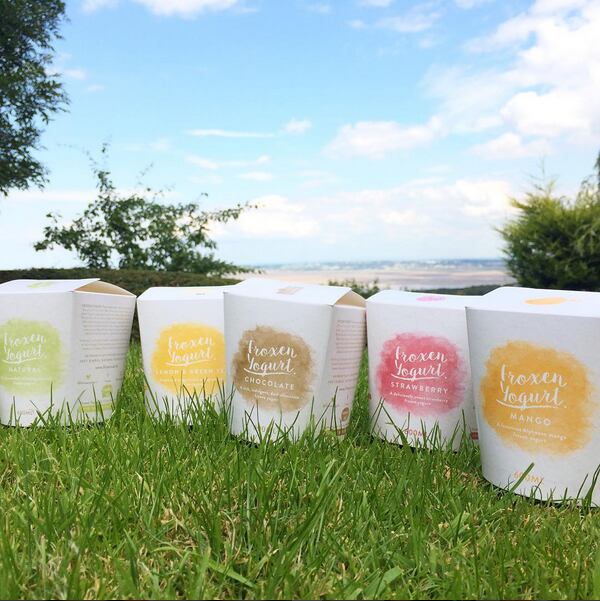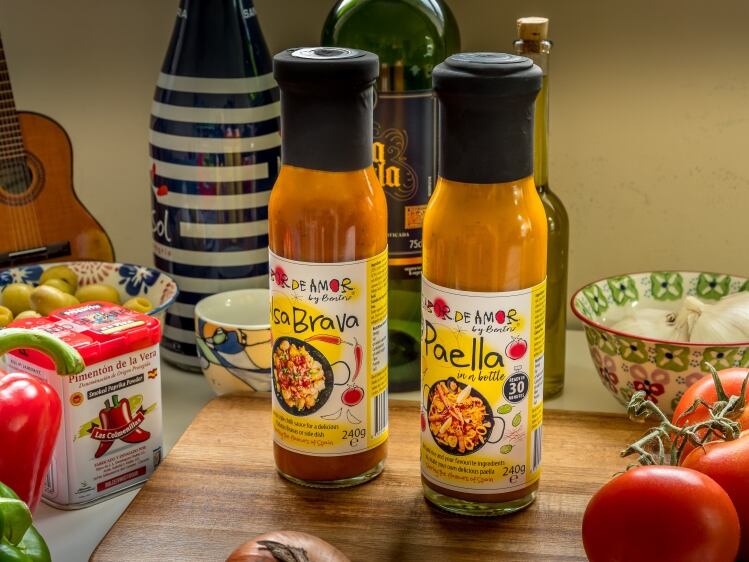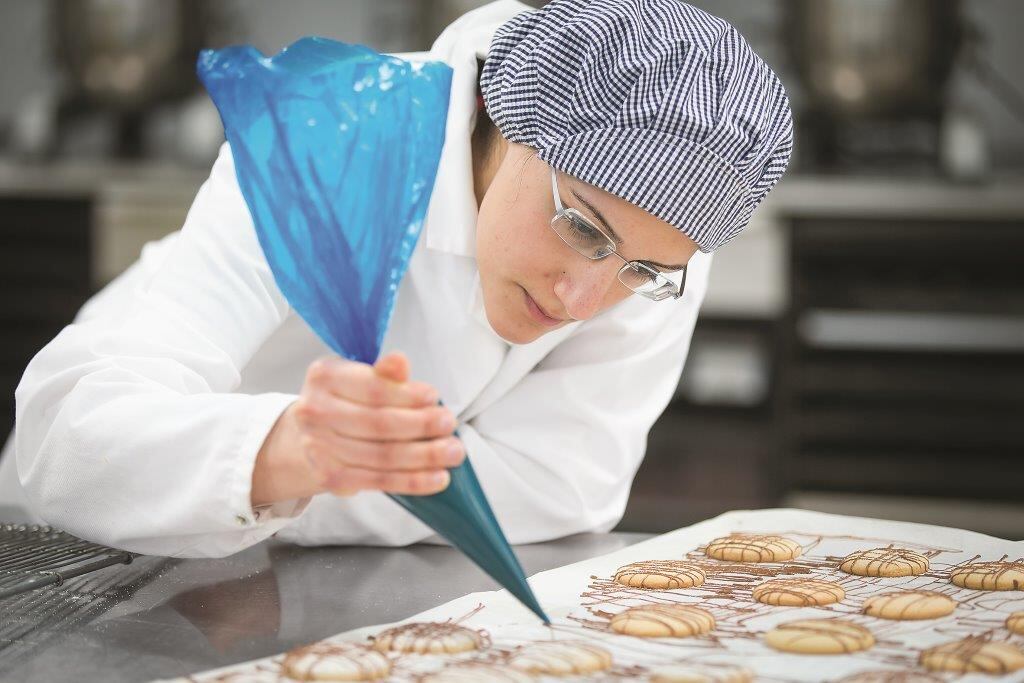The second Taste Wales summit – held on 20–21 March – showed the clarity and focus of the country’s food strategy, and the dedication of the Welsh Government to deliver it.
At the event, Andy Richardson, chair of Food & Drink Wales Industry Board, summed up how far the nation’s aspirations had come since its Towards sustainable growth: an action plan for the food and drink industry was published in June 2014: “We have nearly reached our target to grow Welsh food and drink sales by 30% to £7bn by 2020.” Sales currently stand at £6.8bn and continue to grow, despite the chaos surrounding Brexit.
Export markets continued to promise much, the most recent opportunity being Japan after it lifted its UK lamb and beef import ban in January 2019 said minister for environment, energy and rural affairs Lesley Griffths in her keynote Taste Wales speech. As she put it: “Brexit will not change our determination to build our relationships in Europe.”
Trade was increasing in countries such as France, Spain, Portugal and Northern Ireland, she said. The fact that Wales had 16 products with EU Protected Food Name status, the latest of which was the Vale of Clwyd Denbigh plum, which gained accreditation in February, strengthened its hand, Griffiths said.
That’s just a flavour of Welsh food initiatives. More than 100 food and drink products from 150 suppliers were launched at Taste Wales, displayed (see above) and pitched to a range of commercial customers at intensive speed-dating-style meet-the-buyer sessions.
Underpinning that innova-tion is Project Helix, which, through technical support and bespoke training, has created 225 jobs, assisted 234 businesses and helped set up 129 firms.
Opposite, we outline four examples of Taste Wales exhibitors that have benefited from the initiative, set up in 2017. The project is delivered in partnership with three food centres in Cardiff, Ceredigion and Anglesey as part of Food Innovation Wales, which is now a partner of the European Institute of Innovation & Technology Food. That plugs Wales into support from European industry and research bodies, easing the flow of future development.

Bug Farm Foods makes the leap to baking with cricket flour
Packs of whole buffalo worms, chocolate chip cricket cookies and cricket flour for home baking are among the fare offered by Bug Farm Foods, which was launched in 2017 and is situated at St David’s in Pembrokeshire.
Founders Dr Sarah Beynon, an entomologist, and Andy Holcroft, a development chef with 25 years’ experience, have turned from what some argue are more environmentally-damaging traditional protein sources to insects, to help feed a rising global population.
“My main role is to make the products taste good,” says Holcroft. “We are working towards collaborating with food scientists on changing perceptions.”
The pair are drawing on funding and advice from Project Helix and the Small Business Research Initiative to scale up production and develop robust Hazard Analysis and Critical Control Point procedures.
The business is launching a new research and development centre to support its manufacturing aspirations. The Food Standards Agency and Environmental Health Officers are using cooked meat guidelines to assess due diligence as the company prepares for bigger things.
“We are collaborating with others to develop a larger-scale insect farming industry across the UK and Europe,” explains Holcroft. “Some big companies are involved in driving that. The support from the Welsh Government and [innovation agency] Innovate UK has been superb.”
Bug Farm Foods operates as a working farm, research centre and visitor attraction.
Frozen desserts firm Plas Farm collaborates on vegan venture

Gaerwen-based dairy company Plas Farm was established in 1986 as a chilled yogurt and soft cheese supplier, having diversified beyond farming. Over the years, it has evolved mainly into an own-label frozen desserts maker and has now developed blocks and slices of vegan-friendly cheese analogue in partnership with cheese processor GRH Food Company.
“The business is growing well,” says Plas Farm director David Williams. “We’re investing in ice cream production and in vegan ice cream.”
Aware of the debate surrounding the use of traditional dairy terms for vegan products, Williams confirms the company, which also makes high-protein ice cream will use the term ‘cheese-style’ for its latest products.
John Cullen, sales director at GRH Food Company, which is based at Snowdonia Business Park, Minfford, says: “It was a challenge for both companies to make a product that fires the market and meets vegan criteria. We have seen tremendous interest from retail and foodservice.”
The partners were supported in the more technical aspects of this product development work by Ceredigion-based technology hub Food Centre Wales, which offers advice, services and training to food manufacturers of all sizes.
Plas Farm also launched a range of hand-finished ice cream cakes at Taste Wales. Having built up significant international trade, the business won a Queen’s Award for Enterprise for Excellence in International Trade in 2014.

Sabor de Amor sauce range taps into appetite for Spanish cuisine
Beatriz Albo founded branded Spanish sauces producer Sabor de Amor at Bersham Enterprise Centre in Wrexham in 2014, drawing on recipes used by her mother and served in a family-owned restaurant in Salamanca.
Previously a research scientist, Albo has been able to grow the business considerably thanks to Project Helix funding, moving to a bigger, 74m2 unit in June 2018 in response to growing demand. This allowed her to more than double production capacity, from roughly 3,000 bottles a month to 2,000 bottles a week. That said, the firm still operates with just two full-time staff.
Albo now plans to stock up on processing machinery, including peeling and vacuum-packing devices, to enable her to expand product development. “In all this, we have been advised through Project Helix on the best equipment,” she says.
Products, which boast gluten-free and vegan credentials, are sold mainly through independent retailers and delis, as well as direct via the company’s website. Sabor de Amor also supplies catering packs, but its foodservice business is in its infancy.
The company’s latest innovation work has entailed rebranding and relaunching its bottled Paella sauce and Salsa Brava. “We invested a lot of money in the label,” says Albo. “We started with the product in July [2018] and have finalised the labels just now.”
Wickedly Welsh Chocolate Company targets chocoholics

Located in Haverfordwest Pembrokeshire, award-winning artisan chocolatier Wickedly Welsh draws on locally-sourced ingredients to deliver branded products including flavanol-rich, diabetic-friendly chocolate. It sells these to consumers in its on-site shop and café and online and to independent retail, foodservice and processing customers.
The business has grown to supply Fortnum & Mason, plus sports venues such as Ascot Racecourse and rugby stadiums and is currently working on installing a fifth production line.
The firm’s headquarters is now a visitor attraction, drawing thousands of people every year.
Wickedly Welsh is a relative newcomer to Wales’ food scene, formed in April 2014 by husband-and-wife team Karen and Mark Owen, who were born and grew up in Wales. Mark, a type 1 diabetic, left an office-based life behind and moved back to their homeland with Karen and their two small children when the pair bought the chocolate factory where Karen used to work.
“We took on all the costs of a fully functional business with five staff, a 10,000ft2 [929m2] premises and no order book,” recalls Mark.
Still, they had relevant skillsets with a strong grasp of sales and marketing, he explains. “We thought the worst that could happen is that we could go back to corporate-land.”




